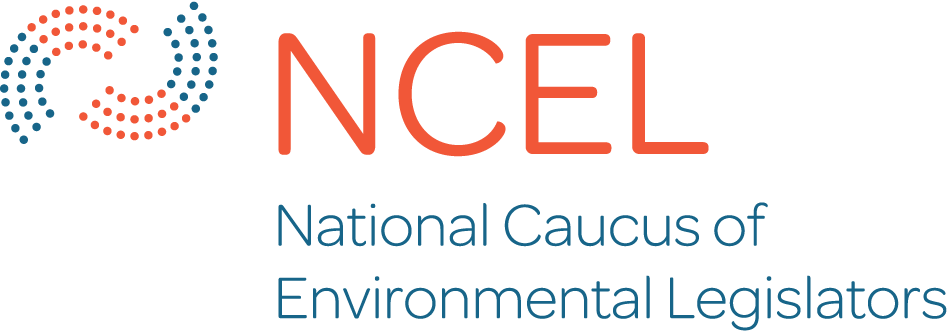
Blog
States Can Lead the Charge on Electric Vehicle Policy
April 23, 2025
This is a joint blog post between Josh D. Boone, Executive Director of Veloz, and Dylan McDowell, CEO of NCEL.

States and local governments have a unique and timely opportunity to lead with stable electric vehicle (EV) policy in the face of a shifting federal policy landscape. We’ve seen what states can do when they band together for a common goal.
More than a decade ago, 10 states pledged to put 3.3 million EVs on the road by 2025. At the time, it was an ambitious prospect when there were only 200,000 EVs on the road and fewer than 20 models to choose from. The 10 states agreed to adopt similar incentives and regulations to encourage EV ownership, cut pollution, and boost their economies. Now, the state-led effort has hit the 3.3 million milestone, according to a recent report by the Northeast States for Coordinated Air Use Management.
As has been proven, states can advance sustainable technologies through innovative policies, often exceeding national standards. Localized efforts have stimulated regional leadership in EV technology deployment, creating economic opportunities while helping to meet local, state, and national clean air and pollution reduction goals. Despite federal policy changes, states are continuing this work, taking action to support EV adoption and expand access to charging infrastructure, driving investments, creating jobs, and saving people money.
EVs on the Rise: Consumer Demand and Economic Benefits
“Common sense state-level public policy can continue to support EV momentum that is already backed by consumer demand,” said Josh D. Boone, executive director of Veloz. “National EV sales hit 8.8% of the new car sales market in December 2024, indicating that Americans want EVs. The way forward is electric and by working together we can continue this momentum.”
Automakers have invested in EV manufacturing in regions with strong EV policies. There are now more than 500 EV industry manufacturing facilities in the U.S. Building out charging infrastructure supports jobs in installation, maintenance and repair, planning and design, assembly, general construction, and more. The industry is expected to create about 160,000 more jobs across the U.S. in the next eight years. EVs are almost 3 to 5 times more efficient, making every EV model in every state cheaper to own than a gas car. Without head gaskets, oil to change, or smog checks, EVs cost half as much to maintain. Households that save money by skipping the gas station spend more on goods and stimulate the local economy.
State Action Fueling National Progress
“Across the country, states are introducing new policies and programs that drive progress in these important economic indicators,” said Dylan McDowell, CEO of the National Caucus of Environmental Legislators. “Every year, we see more and more state leaders taking matters in their own hands and taking action to advance access to cleaner, more affordable transportation options. Now more than ever, we need to continue this progress.”
For example, last year, several states passed new legislation supporting cleaner transportation. Colorado passed HB 24-1173, cutting red tape for charger installation permits. New Mexico adopted HB 41 creating a clean fuels standard. Delaware voted for HB 213 to create a low-income financial assistance program for EV supply equipment covering up to 90% of the total cost. And California passed SB 59 supporting vehicle-to-grid technology adoption.
This year, many states are continuing to introduce bills advancing EVs during their legislative sessions.
These are just a few of the innovative actions seen throughout states this year:
- Hawaii’s SB 1088 would provide rebates for installing EV-ready parking stalls in new affordable housing projects.
- New York enacted SB S801 requiring new off-street parking facilities to include EV charging infrastructure.
- New Mexico’s SB 32 would provide EV school bus incentives that can offer important energy storage options.
Be sure to check out NCEL’s EV bill tracking to see all the state legislation pending this year.
From free parking to rebates to flat-fee registration, states are exploring many different paths to support pollution-free EV adoption and keep momentum going. States can reap the benefits of a robust EV economic pillar with a holistic approach that meets their residents’ unique needs. Financial incentives, in particular, lower the upfront cost of EVs, especially in under-resourced communities, making them more accessible for all. Additionally, investments in consumer education campaigns, like Veloz’s Electric For All, can break down perceived barriers to EV ownership by educating consumers on the benefits of EVs.
EV facts are highlighted, and myths are busted here each month in Veloz’s Ride to Zero Blog. Sign up here to get the latest news, invitations to events, and announcements on the road to electrified transportation. Sign up for NCEL’s newsletter to stay up to date on the latest state actions and environmental policy trends.

About Veloz
Veloz is the power behind the nation’s largest and most inventive multi-partner public awareness campaign for electric vehicles, the architect of events and programming garnering both state and national attention, and the organization bringing together high-powered, diverse board and members from the public and private sectors.

About NCEL
Created by and for state legislators, the National Caucus of Environmental Legislators is a 501(c)(3) nonprofit that organizes over 1,300 environmentally-committed state legislators from all 50 states and both parties. NCEL provides venues and opportunities for lawmakers to share ideas and collaborate on environmental issues.